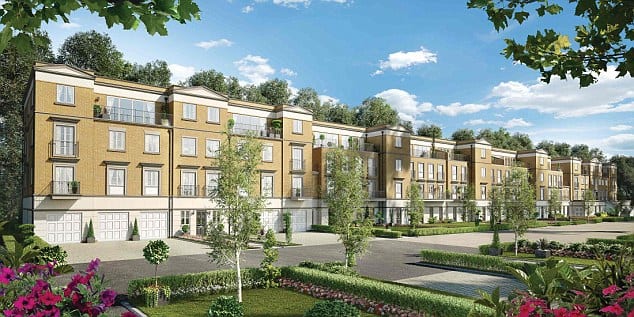The Royal Institute of Chartered Surveyors have reported a dip in activity from home buyers over the past month, based on enquiries received by members, with the trend most noticeable in London and the South East. The ‘waiting’ position being struck has been attributed in large part to economic uncertainty resulting from stalling Brexit negotiations, though in and around London prices having crept beyond what buyers can afford within the framework of current mortgage restrictions is also thought to be a factor.
Among RICS members that took part in the organisation’s monthly survey, 20 percent more reported a drop in buyer enquiries than those who said they had experienced an increase. The comparison was with the previous month and despite August buyer activity traditionally being quieter than September. 15% more surveyors also said numbers of agreed sales had similarly dipped than those reporting an increase. RICS concluded that after six months of dropping activity, the market is at its lowest ebb since the immediate aftermath of the Brexit referendum result in July 2016.
The monthly RICS survey is widely considered a ‘lead indicator’ of the residential property market and its findings typically crystallise into hard data on sales numbers and prices in the following couple of months. RICS members have further cautioned that they expect the sluggish rate of turnover to persist for several more months.
However, the number of properties coming to market for sale has also been declining over the past 18 months.
September was the first month over that period where the number of homes on the market remained level with the previous. Brexit uncertainty appears to be putting sellers off also who are preferring to hold tight and not rock the boat.
The stand-off in both buyer and seller activity appears, at least for the moment, to be creating an equilibrium. In September, house prices remained stable. In fact, 6% more RICS members saw prices rise than those who saw a drop, though regional disparity meant overall averages remained level. London, the South East, East Anglia and the North East saw slight drops in prices counter-balanced by rises elsewhere.
The current inertia is expected to hold until the end of the year, over which time only Scotland and Northern Ireland are expected to see any positive price movement. A year from now RICS members expect prices to start to rise again everywhere other than in London. The capital is anticipated to remain in a lull with modest falls in prices for the next couple of years though a recent KPMG report forecast that from 2019 onwards London will again be the UK region with the strongest property price growth.
For buyers who are keen to complete in the next several months the current lack of market movement could provide good opportunities to negotiate asking prices down.


